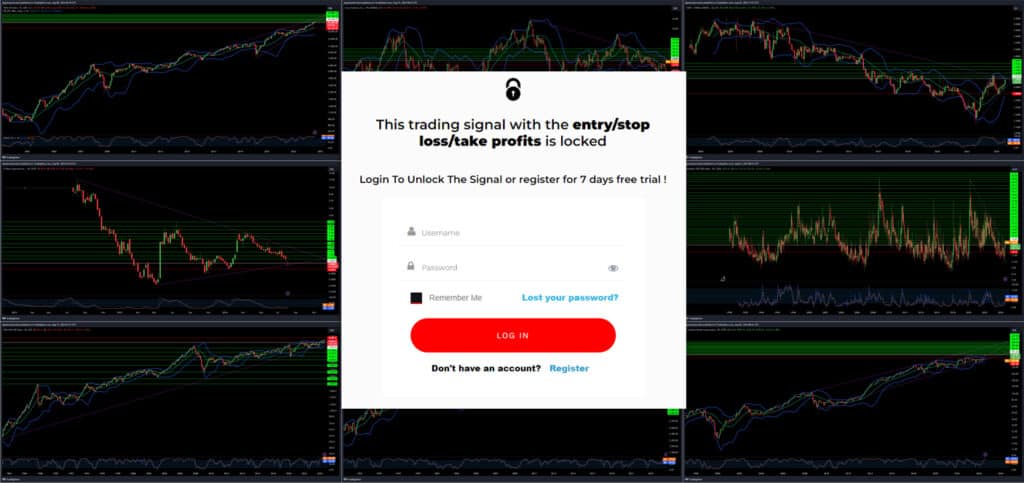Today’s businesses deal with many challenges, especially in war zones and risky areas. These places can harm their supply lines, market stability, and investments. Knowing how conflict affects industries helps companies succeed in such complex areas.
Working in risky areas increases the chances of companies getting involved in serious human rights issues. This can lead to bad reputation, stop business, and face legal issues or fines. It’s crucial for companies to deeply check human rights in these places. They should act to avoid these risks and their harmful effects.
Dangerous places include those with wars, weak laws, corruption, and unstableness. In these areas, businesses might make conflicts worse, support corruption, and increase unstableness. It’s vital for businesses to understand these settings well. This understanding helps them make smart choices and deal with risks better.
Key Takeaways:
- Operating in conflict-affected and high-risk contexts exposes businesses to increased risks of involvement in serious human rights violations.
- Consequences of such violations can include reputational damage, operational interruptions, legal liability, and financial penalties.
- Heightened human rights due diligence is necessary for businesses operating in these contexts to mitigate potential harms and manage risks.
- High-risk contexts encompass armed conflict, weak governance, corruption, and social, political, or economic instability.
- Business activity in these contexts can exacerbate conflicts, contribute to corruption, and amplify overall instability.
Challenges and Risks of Doing Business in High-Risk Contexts
Running a business in risky places has its hurdles. Companies often can’t do much against government actions, leaving them at risk. Safety for workers is a big deal when there’s conflict. And, unclear rules can trip up how businesses work.
Issues like human rights violations can put companies in danger. They must check their supply lines to avoid being part of such wrongs. Ensuring they’re not involved in human rights issues is key.
Dealing with conflict and its effects can be hard for companies. This trouble can even stunt the area’s economic growth. Companies might accidentally make things worse, affecting the law and economy negatively.
Yet, taking the risk can pay off, especially for improving peace and helping the poor. With careful planning, companies can make these areas better and find new business chances there.
Key Challenges and Risks:
- Safety risks for employees
- Inconsistent regulatory environments
- Restrictive domestic legislation
- Business complicity in human rights abuses
- Exacerbation of conflict and instability
- Weakened rule of law
“Business activity in high-risk contexts can contribute to or enable human rights abuses, exacerbate conflict and instability, and weaken rule of law and economic development.”
Overcoming these risks is vital for business growth. Companies must work closely with others, be super careful, and do what’s right. By doing so, they can help communities and succeed in these tough spots.
| Challenges | Risks |
|---|---|
| Safety risks for employees | Threat of harm to employees |
| Inconsistent regulatory environments | Uncertainty and compliance challenges |
| Restrictive domestic legislation | Hindered business operations |
| Business complicity in human rights abuses | Reputational damage and legal liability |
| Exacerbation of conflict and instability | Disrupted operations and potential business losses |
| Weakened rule of law | Increased corruption and reduced trust in institutions |
Impediments to Doing Business in Conflict Zones
Running a business in conflict zones is extremely hard because of many challenges. These can include not having a stable government or enough roads, and too much corruption. The lack of these things can make it tough for companies to grow and make money. Lets look at how these issues affect businesses in war-torn areas.
1) Political Instability
One big challenge in these areas is unstable politics. With fights for power and governments changing often, businesses find it hard to plan for the future. This makes investing and keeping stable sales very difficult. Trying to follow constantly changing rules and keep profits up is a big headache for companies here.
2) Inadequate Infrastructure
Businesses struggle a lot because there aren’t enough good roads or electricity. This means they can’t work efficiently or sell their products easily. Without the right infrastructure, it is very expensive for companies to do their work. This also stops them from serving all the people who might want or need their products.
3) Corruption
Corruption is a major issue in war-torn areas. It makes it hard for businesses to be fair when playing by the rules means they may have to pay bribes. Corruption increases the difficulty and cost of doing business. It also stops companies from feeling secure about growth and investment in these areas.
4) Limited Entrepreneurship Skills
Many places in conflict lack people who are skilled at starting businesses. Without the right training and support, companies find it hard to grow. This lack of business know-how stops firms from coming up with new ideas and staying competitive. It is very challenging for them to get ahead in the world markets.
These challenges need everyone involved to fix them. This includes governments, groups from all over the world, and businesses themselves. It is key to tackle the main issues and create a good environment for businesses. This will help businesses in conflict zones to grow and attract investment.
“Doing business in conflict zones can be incredibly challenging due to various impediments that hinder entrepreneurial activities and sustainable economic development.”
| Impediment | Description |
|---|---|
| Political Instability | Constant power struggles, regime changes, and an unstable government create an unpredictable business environment. |
| Inadequate Infrastructure | Lack of reliable transportation networks, power supply, and basic amenities hamper business operations and growth. |
| Corruption | Pervasive corruption undermines the rule of law, increases the cost of doing business, and creates an insecure environment. |
| Limited Entrepreneurship Skills | Scarcity of skilled entrepreneurs and lack of entrepreneurship support hinder business innovation and growth. |
Conclusion
The Israel-Hamas war greatly impacts global business. Sectors like energy, logistics, and retail face shipping delays. These delays get worse as the conflict continues.
Worldwide, businesses are feeling the fight’s effects. Areas like social media, online shopping, and food see losses. The Middle East and Muslim lands show fewer sales and boycotts. The war causes trades to fall and worries about inflation grow.
Yet, there are business chances even in war zones. Working together, governments, businesses, and groups help these areas grow economically. This collective effort is vital for business and economic growth in troubled zones.
FAQ
What are the potential risks for businesses operating in conflict-affected and high-risk contexts?
What is the importance of conducting human rights due diligence in high-risk contexts?
What are some examples of high-risk contexts?
What challenges do businesses face in high-risk contexts?
How can business activity in high-risk contexts impact the overall situation?
What are some impediments to doing business in conflict zones?
How has the Israel-Hamas war impacted businesses across various industries?
How have businesses worldwide been impacted by the conflict?
Are there still opportunities for economic activity in conflict zones?
Source Links
- https://www.bsr.org/en/reports/business-in-conflict-affected-and-high-risk-contexts
- https://www.securitymagazine.com/articles/84288-doing-business-in-conflict-zones-threats-and-opportunities
- https://www.investopedia.com/companies-are-feeling-the-business-impact-of-conflict-in-the-middle-east-8567767
Disclaimer
All information on this website is of a general nature. The information is not adapted to conditions that are specific to your person or entity. The information provided can not be considered as personal, professional or legal advice or investment advice to the user.
This website and all information is intended for educational purposes only and does not give financial advice. Signal Mastermind Signals is not a service to provide legal and financial advice; any information provided here is only the personal opinion of the author (not advice or financial advice in any sense, and in the sense of any act, ordinance or law of any country) and must not be used for financial activities. Signal Mastermind Signals does not offer, operate or provide financial, brokerage, commercial or investment services and is not a financial advisor. Rather, Signal Mastermind Signals is an educational site and a platform for exchanging Forex information. Whenever information is disclosed, whether express or implied, about profit or revenue, it is not a guarantee. No method or trading system ensures that it will generate a profit, so always remember that trade can lead to a loss. Trading responsibility, whether resulting in profits or losses, is yours and you must agree not to hold Signal Mastermind Signals or other information providers that are responsible in any way whatsoever. The use of the system means that the user accepts Disclaimer and Terms of Use.
Signal Mastermind Signals is not represented as a registered investment consultant or brokerage dealer nor offers to buy or sell any of the financial instruments mentioned in the service offered.
While Signal Mastermind Signals believes that the content provided is accurate, there are no explicit or implied warranties of accuracy. The information provided is believed to be reliable; Signal Mastermind Signals does not guarantee the accuracy or completeness of the information provided. Third parties refer to Signal Mastermind Signals to provide technology and information if a third party fails, and then there is a risk that the information may be delayed or not delivered at all.
All information and comments contained on this website, including but not limited to, opinions, analyzes, news, prices, research, and general, do not constitute investment advice or an invitation to buy or sell any type of instrument. Signal Mastermind Signals assumes no responsibility for any loss or damage that may result, directly or indirectly, from the use or dependence on such information.
All information contained on this web site is a personal opinion or belief of the author. None of these data is a recommendation or financial advice in any sense, also within the meaning of any commercial act or law. Writers, publishers and affiliates of Signal Mastermind Signals are not responsible for your trading in any way.
The information and opinions contained in the site are provided for information only and for educational reasons, should never be considered as direct or indirect advice to open a trading account and / or invest money in Forex trading with any Forex company . Signal Mastermind Signals assumes no responsibility for any decisions taken by the user to create a merchant account with any of the brokers listed on this website. Anyone who decides to set up a trading account or use the services, free of charge or paid, to any of the Broker companies mentioned on this website, bears full responsibility for their actions.
Any institution that offers a service and is listed on this website, including forex brokers, financial companies and other institutions, is present only for informational purposes. All ratings, ratings, banners, reviews, or other information found for any of the above-mentioned institutions are provided in a strictly objective manner and according to the best possible reflection of the materials on the official website of the company.
Forex/CFD trading is potentially high risk and may not be suitable for all investors. The high level of leverage can work both for and against traders. Before each Forex/CFD investment, you should carefully consider your goals, past experience and risk level. The opinions and data contained on this site should not be considered as suggestions or advice for the sale or purchase of currency or other instruments. Past results do not show or guarantee future results.
Neither Signal Mastermind Signals nor its affiliates ensure the accuracy of the content provided on this Site. You explicitly agree that viewing, visiting or using this website is at your own risk.




